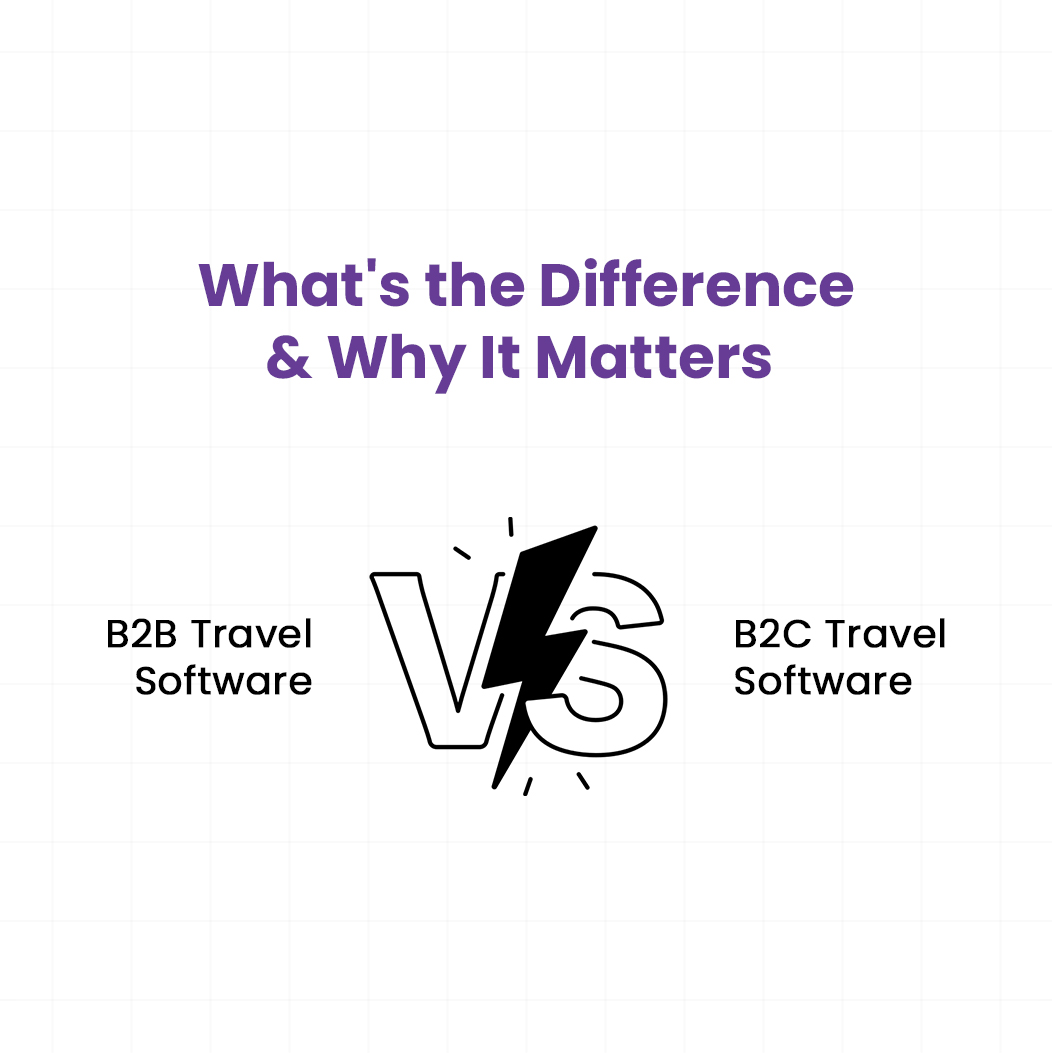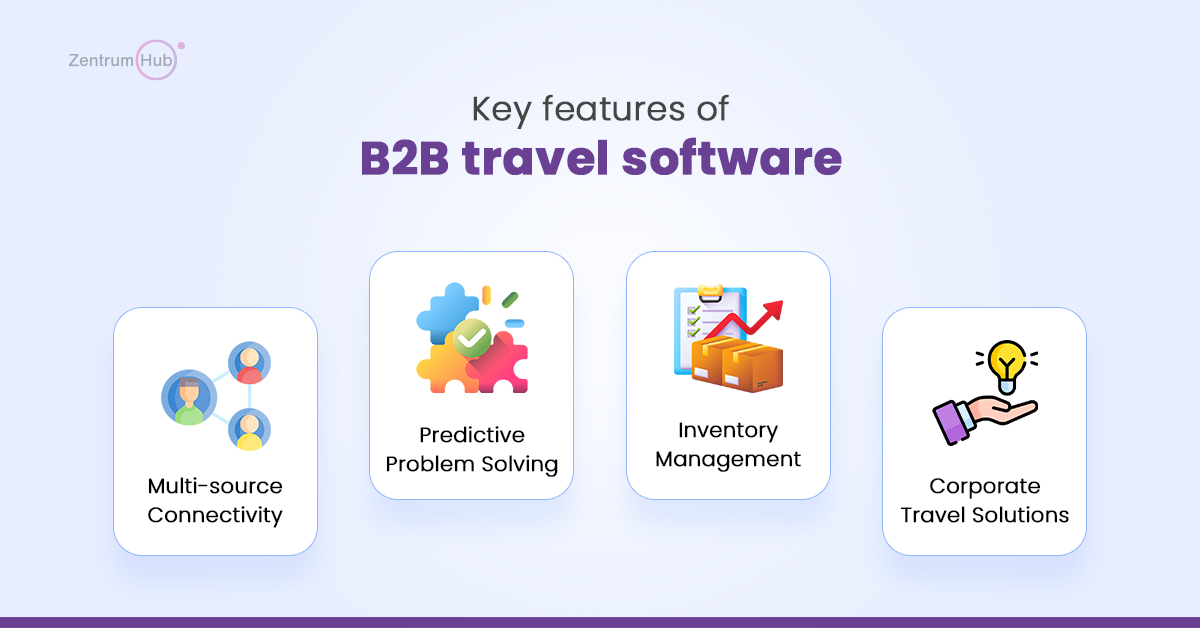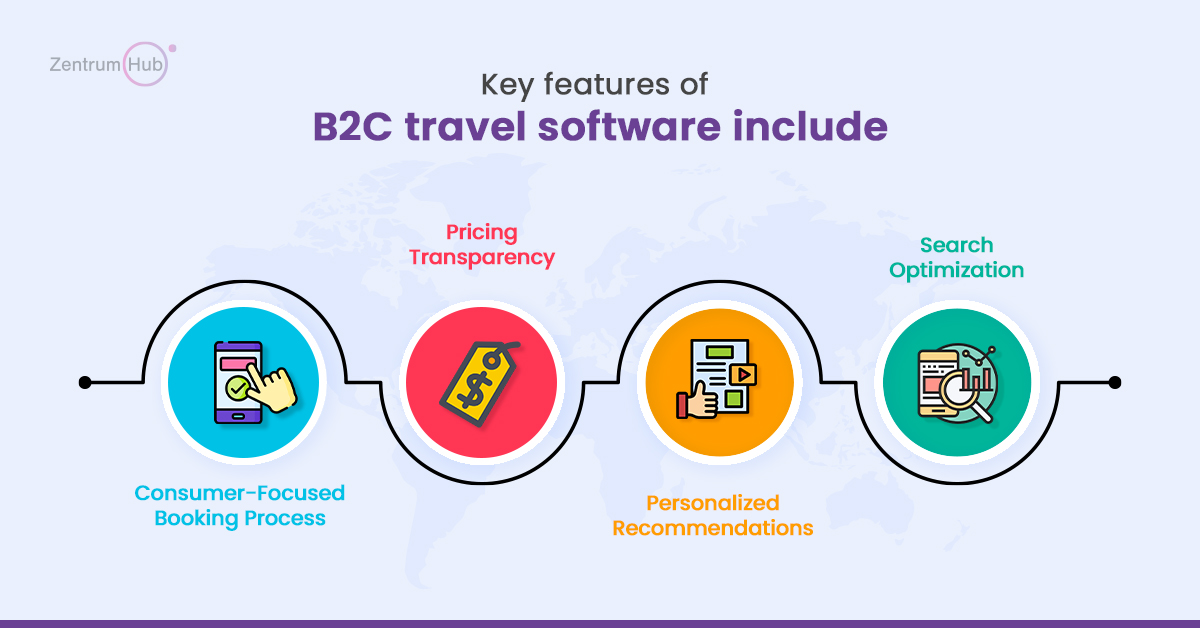

In the travel industry, technology plays a pivotal role in shaping the customer experience. Travel agencies, tour operators, corporate travel departments, and other players in the industry rely on software solutions to manage bookings, streamline operations, and improve customer satisfaction. However, when it comes to travel software, there are two main types: B2B (Business-to-Business) and B2C (Business-to-Consumer). Understanding the differences between B2B and B2C travel software is crucial for businesses to choose the right tool for their needs.
In this blog, we will explore the key differences between B2B travel software and B2C travel software, their unique features, and why it matters for businesses to pick the right one.
B2B travel software is designed for transactions between businesses. It enables travel agencies, tour operators, and corporate clients to book travel products (such as flights, hotels, car rentals, and tours) on behalf of their customers. B2B software typically connects travel suppliers (airlines, hotels, car rental companies, etc.) with travel sellers (agencies, tour operators, corporate travel departments).

B2C travel software is focused on facilitating direct transactions between businesses and consumers. This type of software enables consumers to book travel products such as flights, hotels, and car rentals directly from an OTA (Online Travel Agency), a travel website, or a mobile app.
A Phocuswright study found that 67% of travelers now prefer booking their travel arrangements online through B2C platforms, with mobile bookings increasing by 28% year over year.

Also Read How Can B2B Hotel Booking Portal Save Your OTA Business Time & Money?
Understanding the differences between B2B and B2C travel software is essential for businesses to select the right solution for their needs. Here’s a comparison of the two:
| Feature | B2B Travel Software | B2C Travel Software |
| Target Audience | Businesses (travel agencies, tour operators, corporates) | End consumers (individual travelers) |
| Booking Process | Bulk bookings for customers, managing multiple clients | Single-user bookings, focused on individual consumers |
| Pricing Model | Custom pricing, net rates, and commissions | Transparent pricing with final costs for consumers |
| Integration | Multiple supplier integrations (GDS, APIs, aggregators) | Direct supplier integrations (usually limited) |
| Features | Commission management, policy compliance, approvals | Personalized recommendations, discounts, and loyalty offers |
| Inventory Management | Manage large inventories across multiple suppliers | Simplified, typically single supplier or fewer options |
| Customization | Customizable according to business needs (travel policies, group bookings) | Limited customization, often just branding and loyalty options |
| Payment | Invoice-based, payment terms, corporate credit options | Instant payment at the time of booking |
| Analytics and Reporting | Detailed reporting for bookings, revenue, commissions | Simple reporting focused on user behavior and bookings |
Also Read B2C White Label Travel Platform – Launch Your OTA Quickly
The differences between B2B and B2C travel software matter because they determine how businesses will use the software, how it will integrate with existing systems, and the type of customer experience they can deliver.
According to a GBTA survey, 84% of corporate travel managers cite efficient booking systems as critical to their operations, highlighting the importance of specialized B2B solutions for this segment.
Research from Skift indicates that B2B travel platforms integrate with an average of 27 different supply sources, compared to just 8 for typical B2C platforms.
A recent Deloitte study revealed that 73% of travel management companies require customizable software solutions to effectively serve their corporate clients with diverse policy requirements.
According to Amadeus, corporate travel bookings managed through B2B systems average 22% higher savings through negotiated rates compared to standard B2C booking channels.
A study by Travelport Digital found that 82% of travelers value personalized experiences when booking through B2C channels, while 91% of travel managers prioritize policy compliance tools in B2B systems.
Choosing the Right Solution: Why It Matters
Choosing between B2B and B2C travel software is important because the software’s functionality needs to align with your business goals. If you run a travel agency, tour operator, or corporate travel department, B2B travel software can help you manage multiple bookings, clients, and complex pricing models. However, if you’re an OTA or travel platform focusing on direct consumer bookings, B2C travel software will offer a more intuitive and streamlined solution for your business.
According to a recent customer satisfaction survey, businesses using specialized B2B travel software reported a 37% increase in operational efficiency and a 29% improvement in client satisfaction rates.
The difference between B2B and B2C travel software is more than just a matter of business model – it influences how you manage operations, serve your customers, and scale your business. B2B travel software offers extensive customization, supplier integrations, and management tools for businesses working in the travel industry. B2C travel software focuses on providing individual customers with a smooth and personalized booking experience.
By understanding these differences, businesses can choose the best software solution for their specific needs. Whether you’re a travel agency, tour operator, or corporate travel department, investing in the right B2B travel software will drive growth, efficiency, and better customer satisfaction.
